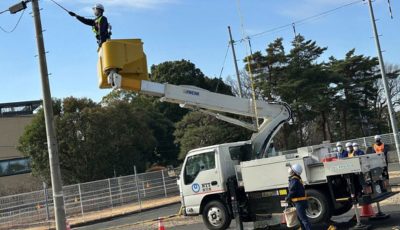Plants available from UOG, Agriculture
Since 2010, the Guam Department of Agriculture and the University of Guam have been partnering to produce diseasAe-free plants available to farmers for local production. The Tissue Culture Program, administered by UOG researcher Alicja Wiecko, has been very successful in propagating banana, taro and yam plants for Guam’s farmers and backyard growers.
“This collaborative effort gives Guam farmers a unique opportunity to grow new plant varieties that are disease free or disease resistant. It helps local growers keep the traditional crops of banana, taro and yam in production in their own backyards. Next year we will expand to ornamental plants thanks to a new USDA grant that includes tissue culture orchids, specifically Dendrobium and Phalaenopsis,” said Wiecko.
The Tissue Culture Program built two fully equipped laboratories at the Department of Agriculture. The program employs four full and part time technicians skilled in tissue culture propagation.
Rosalyn Kikuchi leads the team responsible for producing plants that originate from a small number of mother cells. They grow on agar media in plastic boxes and when tissue culture propagated plants are sufficiently matured, they are transferred outdoors, potted and placed in screened-off sections of the greenhouse.
Field technicians Frank Megofna and Joseph Entilla make sure the young plants are well cared for and protected from insects and diseases.
Department of Agriculture management specialist Ricardo Lizama oversees all technical aspects of the program. He also maintains the only-one-of-its-kind collection of over 30 taro varieties, more than 20 varieties of bananas and numerous yam varieties.
Director Mariquita F. Taitaque administers the Tissue Culture Program organizationally and is highly supportive. “We are proud to give Guam growers access to traditional crops that are free of disease and ready for planting,” said Taitaque. “We are also open to suggestions from the farming community for requests for specific plant varieties that we could produce in the Tissue Culture Program.”
UOG students also benefit from the TCP through the opportunity to work in the rigorous environment of sterile laboratory conditions. Ruby Sablan, who has been working as a lab technician, recently returned from an interview for a doctorial program at West Virginia University. “The interviewers were very impressed that I already had experience working under a Laminar Flow Hood and with the skills I have acquired working with Ms. Wiecko at the lab,” said Sablan. She has been accepted into the doctorial program in pharmaceutical studies for the Fall 2014 semester.
A UOG graduate from the tropical agriculture program, Robert Mendi, also works at the lab. “I did a lot of field work as an undergraduate and working at the tissue culture lab has allowed me to expand my understanding of a different aspect of agriculture. I am certain this experience will help me in making a decision as to a future field of study in a master’s program,” said Mendi.
Alicja Wiecko highly encourages ambitious students with knowledge in biological studies to apply to the Tissue Culture Program for a position at the lab. “The experience of working at a tissue culture laboratory builds a good resume for most plant research programs,” said Wiecko.
Wiecko also invites science teachers to contact her to arrange for small group field trips to visit the Tissue Culture Laboratory and a greenhouse. For more information and to get healthy plants for your garden or farm, please contact Alicja Wiecko at 735-2140 or Ricardo Lizama at 300-7974. (UOG)




























